Salvo en los Estados Unidos y Canadá, en todo el mundo cada 1° de Mayo se celebra el día internacional de la clase trabajadora. Se organizan actos y marchas masivas, que levantan las demandas más sentidas. El capitalismo imperialista sólo nos ofrece cada vez más desigualdad y miseria, guerras y desastre ambiental rumbo a la barbarie. Por eso desde la LIS reafirmamos la necesidad de construir alternativas políticas revolucionarias para enterrar este sistema inhumano y abrir paso al socialismo.
Por Pablo Vasco
El 1° de mayo de 1886, en Chicago, comenzó una gran huelga por la jornada laboral de ocho horas. Durante varios días los obreros enfrentaron a la policía. Ocho dirigentes fueron enjuiciados y condenados: tres a prisión y cinco a muerte. Louis Lingg se suicidó en su celda para no ser ejecutado, mientras que el 11 de noviembre de 1887 Georg Engel, Adolf Fischer, Albert Parsons y August Spies fueron ahorcados. Antes de morir, Spies les gritó a sus verdugos: “La voz que van a sofocar será más poderosa en el futuro que cuantas palabras pueda yo decir ahora”.
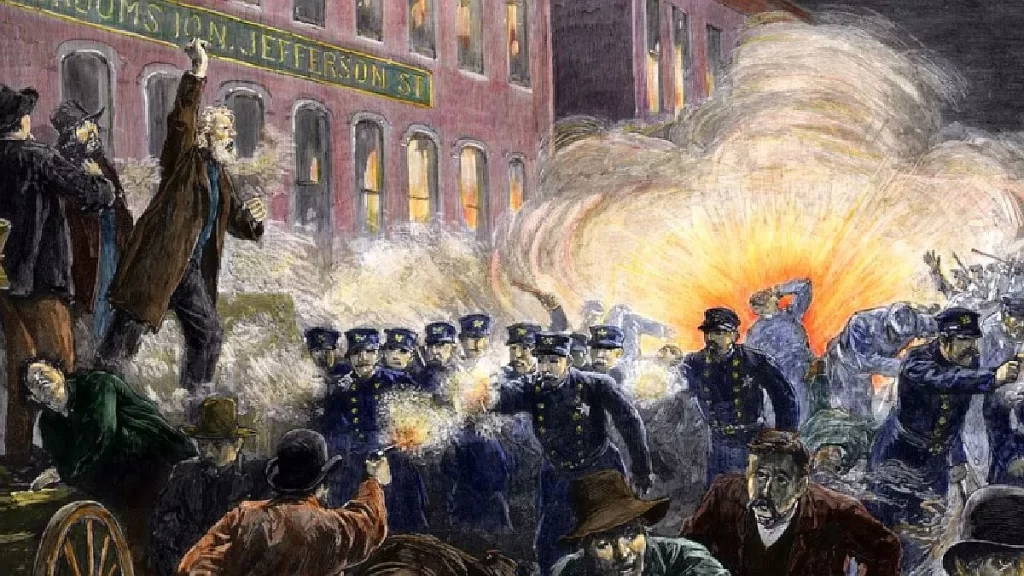
En 1889, el congreso de la Segunda Internacional Socialista, celebrado en París, instauró el 1° de Mayo en homenaje a los “Mártires de Chicago” y como jornada internacional de lucha por los derechos de las y los trabajadores. A partir de entonces, a fuerza de huelgas y movilizaciones, en cada vez más países se fueron logrando las ocho horas y asimismo el 1° de Mayo como jornada no laborable y pagada por las patronales. En suma, es una fecha que ha sido impuesta en el calendario mundial por la clase obrera, un día menos de explotación capitalista.
Qué es hoy el mundo del trabajo
Sobre una población mundial de unos 7.900 millones de personas, según los últimos datos de la OIT casi 3.400 millones trabajan. Mayormente lo hacen a cambio de un salario, ya que aún subsisten nichos de trabajo esclavo o semiesclavo. Si a ese 43% directo le sumamos los millones de trabajadorxs desocupadxs, los millones de trabajadorxs ya jubiladxs y los millones que constituyen sus familias, resulta evidente que la enorme mayoría de quienes habitamos este planeta somos parte de la clase trabajadora, la única que con su trabajo produce todos los bienes y servicios.
Desde ya, entre otras divisiones reales o alentadas por la burguesía, esa clase está fragmentada por la precarización, con más de la mitad en condiciones de informalidad. Esto afecta más a las mujeres, que constituyen más del 40% de la fuerza laboral mundial. Pero ninguna de esas debilidades invalida el hecho contundente de que, lejos de la canmpaña neoliberal sobre una supuesta “reducción” de la clase trabajadora y su rol, ésta existe, es masiva, crece y lo decisivo: en todos lados sigue defendiendo con uñas y dientes sus derechos atacados por este capitalismo en crisis sistémica, cada vez más explotador y depredador.
Es que bajo el capitalismo imperialista en su actual etapa de decadencia y polarización social ya no sólo no hay ningún estado de bienestar genuino, sino que hace rato se ha transformado en un estado de malestar obrero, juvenil y popular que se expresa en luchas, rebeliones e insurrecciones.
Un pantallazo global de las luchas obreras
Esta nota no pretende abarcar la totalidad de conflictos del globo, por cierto, sino sólo reseñar algunos ejemplos en los distintos continentes. El 2022 se inició con un levantamiento popular en Kazajistán, ya el pueblo trabajador de Ucrania lleva más de un año de resistencia armada frente a la invasión rusa, una inédita semi-insurrección popular en Sri Lanka derribó al gobierno ajustador y el año terminó con fuertes huelgas en Europa occidental.
Un destaque especial merecen las masivas huelgas y movilizaciones en los países imperialistas, porque se trata de los bastiones más poderosos de la clase obrera mundial por su peso social. En Europa dio el puntapié la oleada huelguística en Gran Bretaña, mostrando la recuperación de su clase trabajadora desde la derrota que en 1985 le asestó Margaret Thatcher. Hubo también huelgas en Italia, Alemania, el Estado español, Portugal y paros generales en Bélgica, Grecia y Chipre. A la vanguardia están el movimiento obrero y la juventud de Francia contra la reforma jubilatoria de Macron, con doce paros generales y manifestaciones de una magnitud no vista desde hace décadas, en un proceso de lucha aún abierto y que cuestiona al gobierno burgués.
En los Estados Unidos hubo huelgas del sector docente -en especial del nivel universitario-, los ferroviarios, lxs trabajadorxs de los depósitos de Amazon -medida que se extendió a 30 países-, la cadena de bares Starbucks, los mineros del carbón, las enfermeras y otros gremios. En América Latina protagonizaron fuertes luchas los piqueteros, trabajadores del neumático, médicos residentes, choferes y docentes de Argentina; los telefónicos de México, las docentes de Bolivia; los estatales, metroviarios y docentes de Brasil, los portuarios y camioneros de Chile, hubo un levantamiento indígena en Ecuador, una rebelión popular en Haití, fuertes huelgas en Panamá y otra rebelión popular en Perú que todavía persiste a pesar de la cruenta represión.
En cuanto al Asia y África, hubo fuertes huelgas en Egipto -fibra óptica, metalúrgicos, alfombras-, en Sudáfrica -salud, estibadores, ferroviarios-, en Irán tras la gran rebelión que desató el asesinato de la joven Mahsa Amini -petróleo, gas, petroquímica, refinerías, centrales eléctricas y acerías- e Indonesia -fundiciones y otras. China presenció varias protestas contra el nuevo confinamiento y huelgas masivas en las mega-plantas de IPhone. En la India 200 millones de trabajadores cumplieron un paro general de 48 horas por aumento salarial y contra las privatizaciones. En Australia hubo huelgas en Pfizer, Apple Store y otras empresas. Y a la vez, se fortalece la resistencia de los pueblos palestino, saharaui y kurdo.
Como vemos, prácticamente no hay región del mundo en donde la clase trabajadora no resista y dé batalla contra los capitalistas, sus gobiernos y sus planes de austeridad.
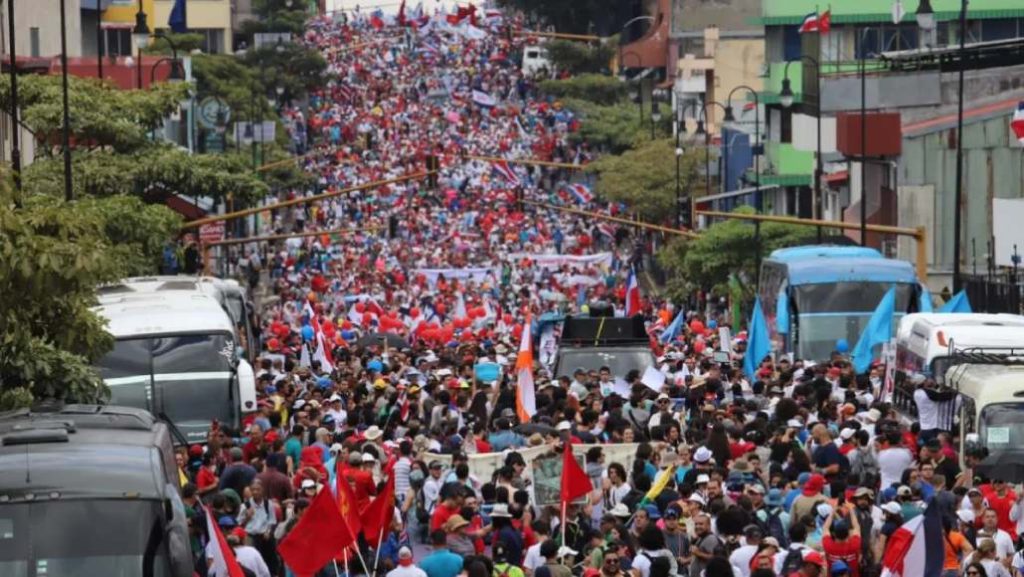
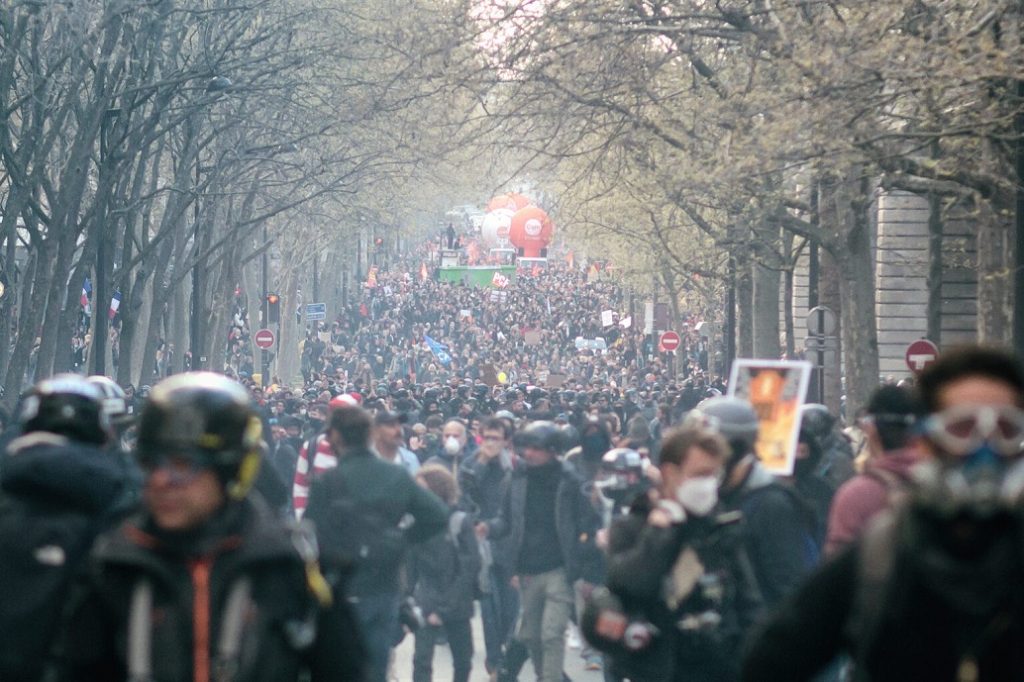
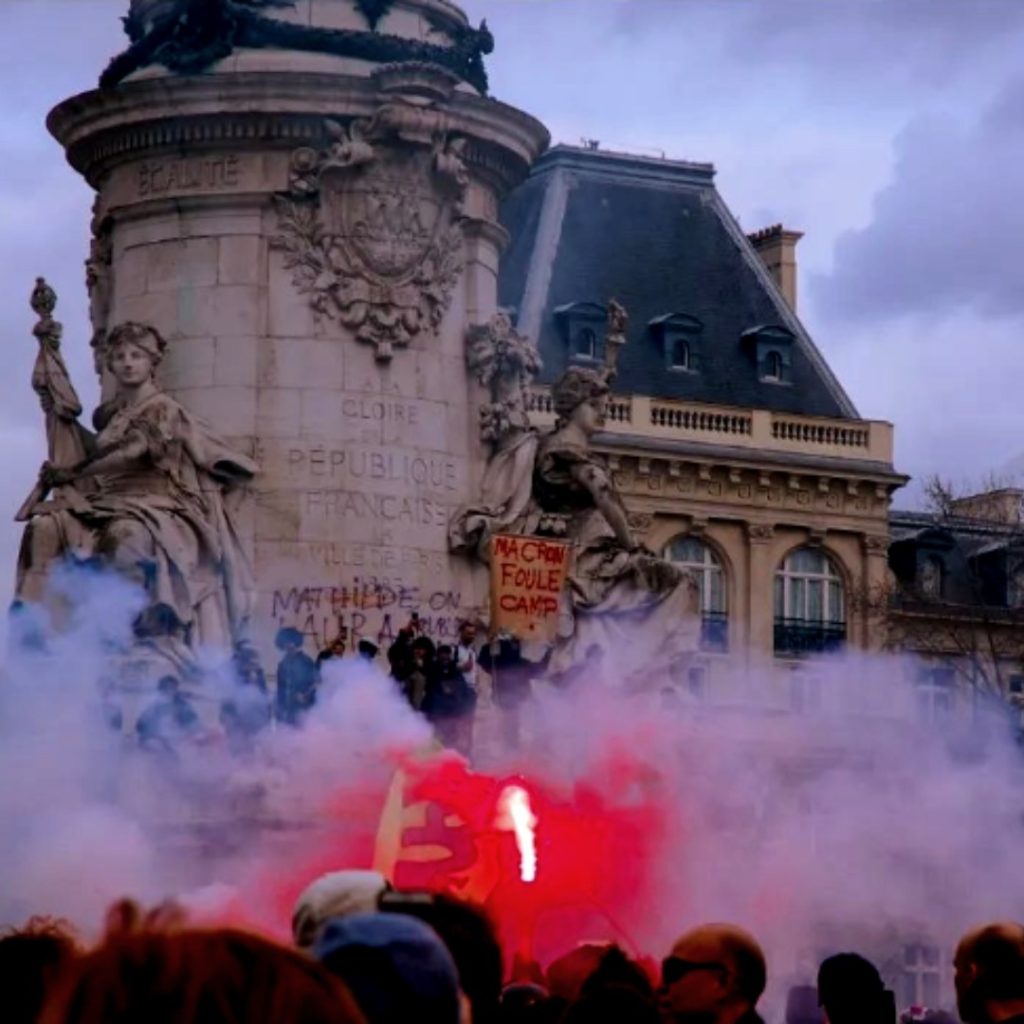
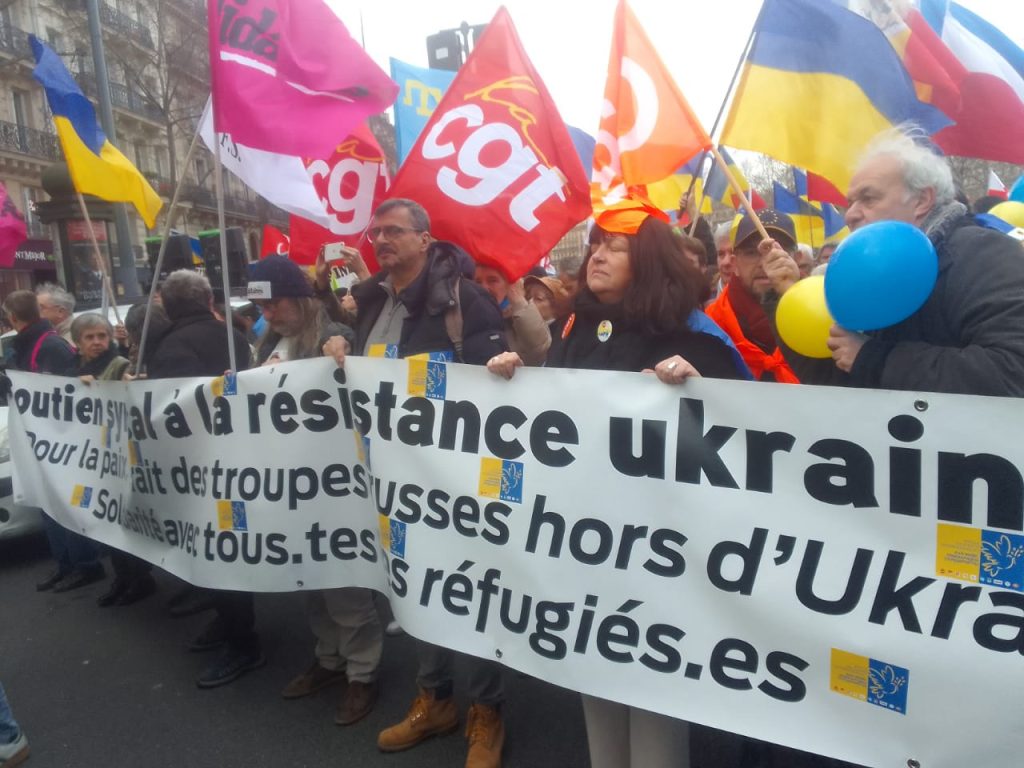
Construir alternativas revolucionarias
El principal motor de estas luchas que cruzan el mundo es el reclamo por los salarios que se deterioran sin pausa ante la inflación y por las condiciones laborales, también por el derecho a sindicalizarse o contra los despidos y cierres de empresas.
En general, la burocracia sindical todavía no es desbordada por una nueva dirección y/o organismos de autodeterminación democrática de las bases, pero al calor de las luchas surge una vanguardia joven y combativa que se organiza desde abajo. Con desigualdades y particularidades según cada país, una nueva generación militante juega un rol destacado en las luchas, busca formas de coordinación, avanza en su experiencia con las viejas direcciones frenadoras, se radicaliza, debate y está abierta al diálogo político con la izquierda revolucionaria.
Como bien lo expresa el Documento sobre la situación mundial aprobado en el 2° congreso mundial de la LIS, realizado en marzo pasado en Barcelona: “Los capitalistas no tienen hoy fuerza suficiente como para infligir derrotas históricas a las luchas que se desarrollan y aunque los problemas de dirección de nuestra clase y los sectores populares tampoco les permiten resolver la crisis capitalista a su favor, se seguirá luchando contra los ataques al nivel de vida y el autoritarismo creciente. Por eso la perspectiva que visualizamos es hacia una profundización del ascenso, con más huelgas, movilizaciones y rebeliones recurrentes.
“Nuestro desafío es aprovechar en cada país esta nueva etapa para foguear a nuestros cuadros más jóvenes, estructurarnos social y políticamente en la clase obrera y los sectores más dinámicos del movimiento de masas y pegar saltos en nuestra construcción, siendo consientes de que estamos recién en los inicios de un proceso que tenderá a profundizarse y nos dará múltiples oportunidades para avanzar.
“Sólo si avanzamos en la construcción de fuertes organizaciones socialistas revolucionarias en esta etapa y logramos dirigir sectores de nuestra clase podremos transformarnos en un factor objetivo que contrarreste las debilidades de los procesos, ayude al movimiento obrero a jugar el rol estratégico que se necesita y disputar el poder en las próximas rebeliones y revoluciones que se produzcan. Solo así lograremos que la situación pre-revolucionaria que atravesamos no termine retrocediendo, se transforme en revolucionaria y podamos cambiar la historia”.[i] En este 1° de Mayo, entonces, desde la Liga Internacional Socialista saludamos y les hacemos llegar toda nuestra solidaridad a las y los trabajadores que en todo el mundo, a veces en condiciones muy difíciles, luchan sin tregua por sus derechos. En Francia, contra la reforma jubilatoria. En Ucrania, contra la invasión de las tropas de Putin y a la vez contra el gobierno de Zelensky. A los activistas obreros de Bielorrusia que enfrentan la persecución del dictador Lukashenko. A los trabajadores de Kenia y toda el África, que dan pelea contra el hambre y la explotación neocolonial. A los de Nicaragua, que se organizan por sus derechos sociales y democráticos. A todas y todos ellos, desde Pakistán al Líbano y desde EE.UU. a la Argentina, vaya nuestro abrazo de clase y revolucionario. ¡La clase obrera es una y sin fronteras
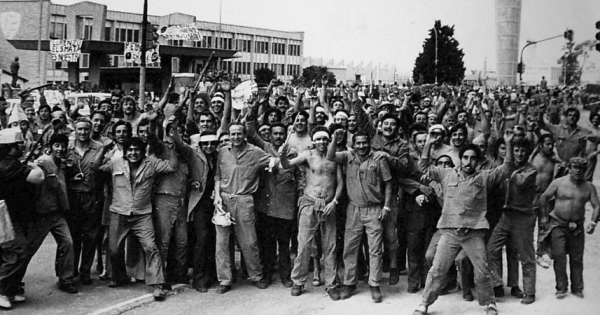
[i] https://lis-isl.org/2023/03/14/2-congreso-de-la-lis/





